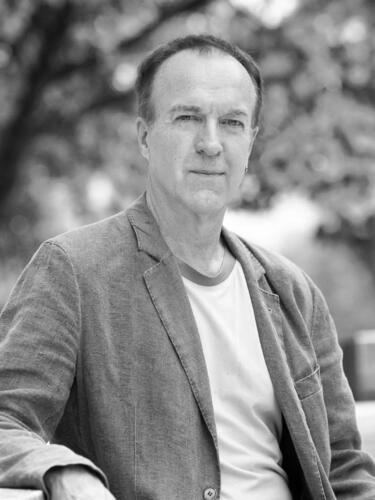
January 16, 2024
Rob Nixon, the Thomas A. and Currie C. Barron Family Professor in Humanities and the Environment at Princeton University, will deliver the 2024 Tanner Lectures on Human Values. At a time of surging interest in environmental justice and the environmental humanities, Nixon’s lectures explore the crossroads where those two fields engage with research findings from the ecological and behavioral sciences. Click here for more information about the series.
Ecology and Equity: Environmental Justice Revisited (Part 1)
Wednesday, April 3, 2024 | 4:30 pm
Humanities Quadrangle (HQ), L02
Environmental Justice and the Great Outdoors
In 2005, Richard Louv sounded the alarm that children were trading too much outdoor time for indoor time on screens. His coinage—nature deficit disorder—has inspired myriad studies into the benefits of getting outside. That research reveals a so-called “green dividend,” the measurable physiological and psychological improvements that accrue from natural immersion. Yet such peer-reviewed studies typically ignore the way natural spaces are implicated in topographies of social power. How can we acknowledge the health advantages nature may afford, while also acknowledging that “losing yourself” in nature is not an equally accessible ideal? For many communities, immediate risk and historical trauma shadow the great outdoors, making the ‘green dividend’ a more fraught, ambiguous attainment.
Rob Nixon is the Currie C. and Thomas A. Barron Family Professor in the Humanities and the Environment at Princeton University. He is the author of four books, including Slow Violence and the Environmentalism of the Poor (Harvard), celebrated for its fundamental contributions to ecocriticism and the environmental humanities. Nixon is a frequent contributor to the New York Times, where he writes on environmentalism and on literature and culture from the global South. He has been awarded a Fulbright-Hays Fellowship, a MacArthur Foundation Peace and Security Fellowship, and a National Endowment for Humanities Fellowship. Nixon is currently working on a collection of essays on environmental justice in the Anthropocene.
Ecology and Equity: Environmental Justice Revisited (Part 2)
Thursday, April 4, 2024 | 4:30 pm
Humanities Quadrangle (HQ), L02
Neoliberalism and the Science of Plant Cooperation
Multiple contemporary bestsellers, from Robin Kimmerer’s Braiding Sweetgrass to Richard Powers’s The Overstory, celebrate the wonders of the Wood Wide Web, a term coined by forest ecologist Suzanne Simard in 1997. Simard’s research reveals how vast, hidden mycorrhizal networks connect trees, allowing them to redistribute resources vital for individual and collective flourishing. How can we explain the sudden, popular fascination with this hitherto arcane corner of ecological science? Could it be that neoliberalism’s dog-eat-dog ideology and surging inequality have left readers eager for alternative, more cooperative models of governance and being? Could it be that the widening chasm between the mega-rich and the socially abandoned has created an audience responsive to the Wood Wide Web as an allegory of survival-through-collaboration?
Ecology and Equity: Environmental Justice Revisited (Part 3) - Rob Nixon in conversation with Gerald Torres and Nurfadzilah Yahaya
Friday, April 5, 2024 | 10:00 am
Humanities Quadrangle (HQ), 134
Gerald Torres is Professor of Environmental Justice at the Yale School of the Environment, with a secondary appointment as Professor of Law at the Law School. A pioneer in the field of environmental law, Torres has spent his career examining the intrinsic connections between the environment, agricultural and food systems, and social justice. His research into how race and ethnicity impact environmental policy has been influential in the emergence and evolution of the field of environmental justice. His work also includes the study of conflicts over resource management between Native American tribes, states, and the federal government.
Nurfadzilah Yahaya specializes in history of Southeast Asia, Indian Ocean history, legal history, history of infrastructure, and environmental history. Her first book, Fluid Jurisdictions: Colonial Law and Arabs in Southeast Asia, demonstrates how colonial subjects entrenched European colonial legalities in British and Dutch territories in Southeast Asia by playing several jurisdictions against one another from the mid-nineteenth century onwards. Her current book project, “Overflow: History of Land Reclamation in the British Empire in the Twentieth Century,” lies at the intersection of environmental history, urban history, science and technology studies, legal history, and history of infrastructure.
External link: